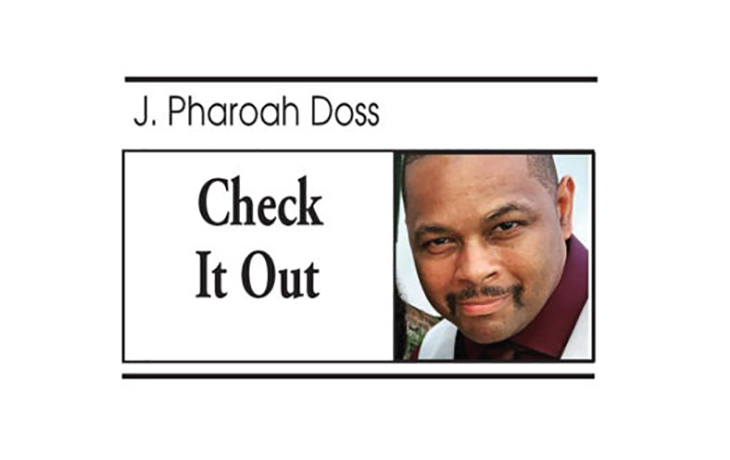DAVID LUCAS
During a comedy show, Black comic David Lucas made a joke about George Floyd while battling a Black heckler in front of a mostly White audience. After so many interruptions, Lucas informed the heckler that he was illustrating to the White audience why George Floyd had his neck kneeled on.
The audience was shocked.
Lucas told the audience not to “boo” the joke. He then assured the audience that he would never have kneeled on George Floyd’s neck and would have shot the N-word. Some of the audience laughed, while some Black attendees walked out. On the way out, someone told Lucas that he stooped too low for a joke.
Of course, the incident went viral.
Many influencers chastised Lucas for his joke. They maintained that Lucas confused shock value and comedy, implying that shock value is not inherently humorous. Influencers also accused Lucas of using “Black pain and suffering” to elicit a cheap laugh from a White audience. Lucas stated that he would apologize to anyone who took offense, but he would not apologize for making a joke.
It should come as no surprise that shock value is used outside of comedy, but it is more difficult to recognize.

For example, podcaster Jason Whitlock had a conversation with a Christian author in the middle of Black History Month. Whitlock named his show Martin Luther King’s True Legacy How He Led Black America Away from God and Into Democrat Dependency.
Now, a title must immediately capture the audience’s attention, but is Whitlock’s title simply controversial or pure shock value?
By definition, controversial means “to cause public disagreement,” while shock value implies “to elicit a strong reaction of disgust, anger, fear, or other negative emotions.”
If the title implied that MLK’s true legacy led Black America into Democrat dependency, that would be controversial; however, Whitlock’s title indicates that MLK led Black America away from God. That phrase evokes a negative emotional response.
Whitlock’s guest was Vince Everette Ellison, the author of 25 Lies: Exposing Democrats’ Most Dangerous, Seductive, Damnable, and Destructive Lies and How to Refute Them. Bombardier Books is Ellison’s publisher. The firm specializes in conservative political nonfiction, and they are on a mission to “unleash a torrent of provocative thought onto the political and cultural battleground … because sometimes you need to drop rhetorical bombs from 40,000 feet to get people to hear new ideas.”
Ellison began by exposing MLK’s infidelity. There is nothing new about a man having an affair or a pastor being hypocritical. Whitlock’s title did not imply that MLK’s personal life led Black Americans away from God. Ellison’s personal attacks were neither shocking nor controversial; they were his version of tearing down a statue.
Ellison then informed Whitlock that, as he was attempting to figure out why Black Lives Matter was demonstrating and NFL players were kneeling instead of standing for the national anthem, he had just finished reading political philosopher John Locke’s Second Treatise on Government.
Ellison discussed Locke’s assertion that man derives his unalienable rights from God. Society has a social contract with the government, under which the government’s principal role is to ensure and safeguard the Creator’s unalienable rights conferred on humanity.
However, Ellison stated that he discovered the cause of the civil unrest in MLK’s I Have a Dream speech. Ellison believed that MLK delivered the poison pill when he declared, “The Negro still is not free.” Ellison claimed that BLM was protesting and NFL players were kneeling because MLK’s actual legacy is the heretical concept that rights originate from the government rather than God.
Ellison’s assertion is entirely false.
First, we heard John Locke’s ideas echoed in the Declaration of Independence. There’s nothing new there. But there was a counterargument to Locke. Another philosopher, Rousseau, famously stated, “Man is born free, but everywhere he is in chains.” In other words, God may grant rights, but it is human institutions that enslave people.
When man-made institutions oppress people, the people must appeal to or remind the government of its fundamental role.
That is precisely what MLK did in his I Have a Dream speech, four sentences after declaring, “The Negro still is not free.” MLK stated, “When the architects of our republic wrote the magnificent words of the Constitution and the Declaration of Independence, they were signing a promissory note to which every American was to fall heir. This note was a promise that all men—yes, Black men as well as White men—would be guaranteed the unalienable rights of life, liberty, and the pursuit of happiness.”
Then he went on to say, “It is obvious today that America has defaulted on this promissory note insofar as her colored citizens are concerned.”
MLK did not petition the government to grant Black people freedom. MLK criticized the government for failing to fulfill its sacred commitment to protect God-given rights for all of its citizens.
Ellison reversed MLK’s argument for pure shock value.
It’s actually funny. The stand-up comic was chastised for stooping too low, while the Christian author was put on a pedestal for being controversial.

